Context: This article is based on the news “Beyond Jammu and Kashmir: Why many states in India enjoy Special Provisions for Some States” which was published in the Live Mint. Recently, the Supreme Court (SC) ruled that Article 370 is only a feature of asymmetric federalism, which is not the same as having internal sovereignty.
Fear Among States with Special Provisions for Some States
- Fear among states with Special Provisions for Some States: The Abrogation of Article 370 has triggered discussions about potential amendments to Article 371, causing concerns among states with Special Provisions for Some States about the potential elimination of their distinctive status.
- Temporary Provision: Article 370 was a temporary provision in the Constitution, different from the special provision like Article 371 with regard to other States.
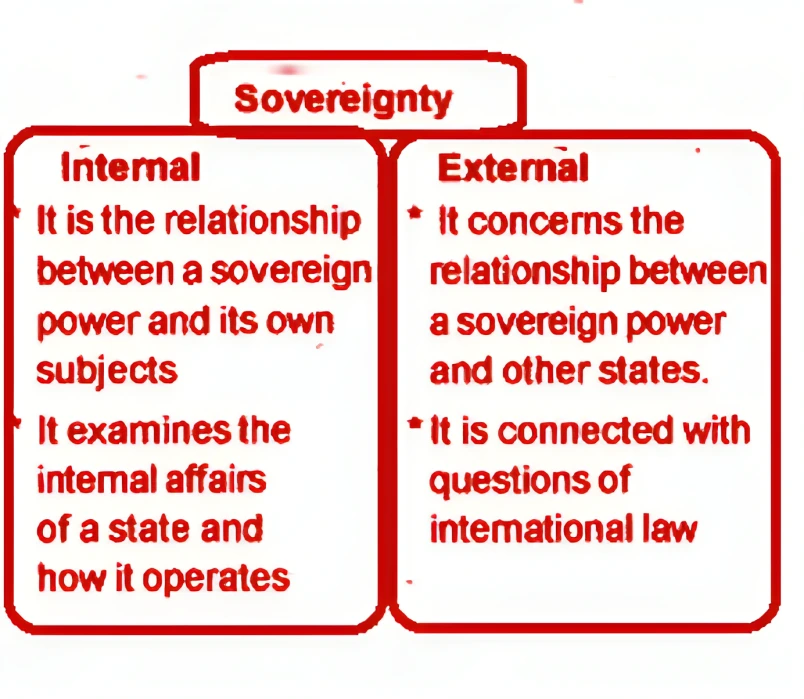 Centre’s Assurance: The central government has assured that it has no intention to change any part of the Constitution which gives Special Provisions for Some States to the North East and other regions.
Centre’s Assurance: The central government has assured that it has no intention to change any part of the Constitution which gives Special Provisions for Some States to the North East and other regions.- SC Verdict: The SC upheld the government’s decision to suspend Article 370 and the bench also affirmed Ladakh’s reorganization as a Union Territory.
- Article 370: Article 370 of the Constitution gave special status to Jammu and Kashmir in the Indian Union.
- It restricted the Centre’s legislative powers with respect to the state and gave the state legislature to make its own laws in all matters except for finance, defense, foreign affairs and communications.
Continue Reading: Supreme Court Upheld Abrogation Of Article 370, here.
Background of Article 371 (Special Provisions for Some States)
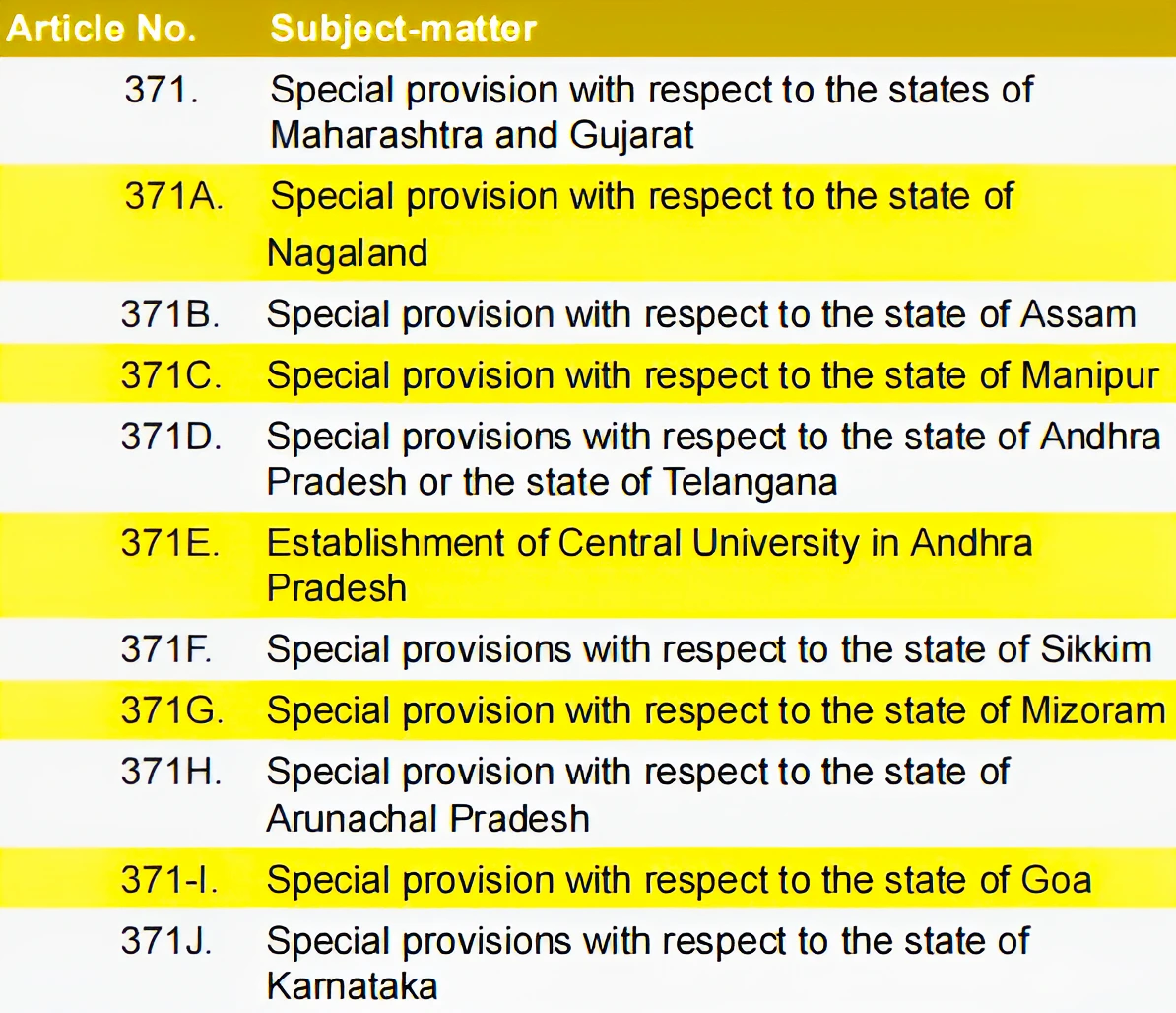
- Federal Structure: Constitutionally, India’s governance structure is quasi-federal with a unitary tilt.
- While states have autonomy, the Constitution tilts towards the Centre in certain areas.
- Seventh Schedule of the Constitution: It contains the Union, State and Concurrent lists that prescribe subjects the Centre and states are empowered to legislate upon.
- For those in the concurrent list, the Union law would prevail in case of a conflict between the law made by Parliament and the state legislature.
- Inequality Between States: India’s plurality necessitates an arrangement for differentiated equality for states depending on various factors, ranging from fiscal, political and administrative.
- Provisions for SPS: Articles 371 to 371-J in Part XXI of the constitution contain Special Provisions for Some States for states (SPS).
- Originally, the Constitution did not make any Special Provisions for Some States for these states and the various subsequent amendments have incorporated them.
- Temporary Provisions: All these exceptions are under a Section of the Constitution titled “Temporary, Transitional and Special Provisions for Some States,” which indicates that these provisions would be operable till the crisis (either secessionist sentiments or war) ceases.
- However, none of the provisions contain an explicit expiry date.
Why special provisions are given for some states?
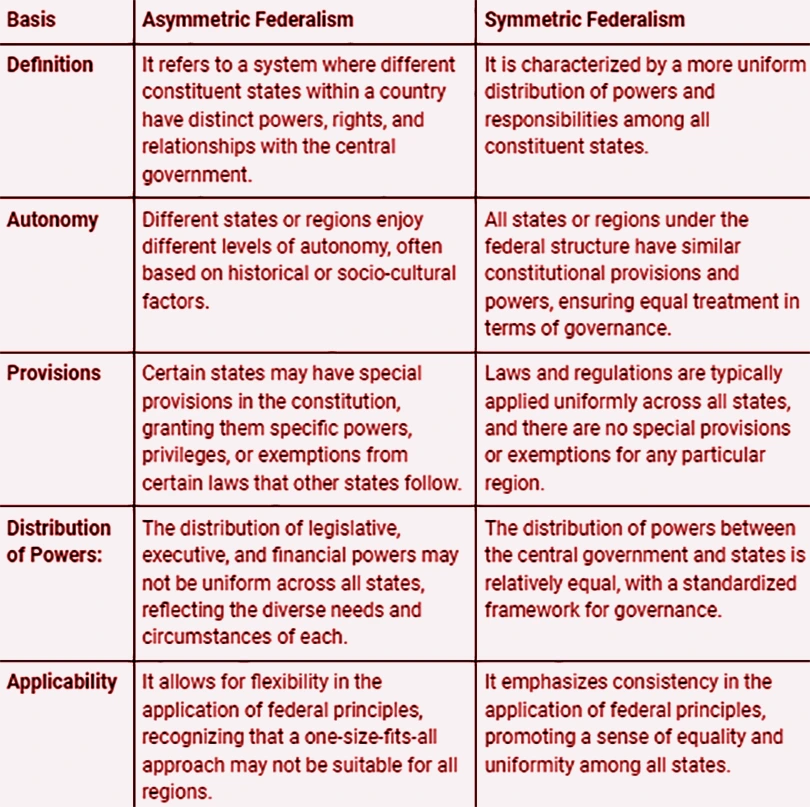
- Rectify Historical Exploitation: Special Provisions for Some States are a feature of asymmetric federalism which aim to correct the historical injustices faced by some states and ensure equitable development.
- For example, Special Provisions for Some States were instituted under Article 371G for Mizoram which faced historical disadvantages particularly concerning its tribal communities.
- Reducing Socio-Economic Disparities: There are significant variations in the levels of development, infrastructure, and access to resources among states. Special Provisions for Some States help reduce these socio-economic disparities and promote balanced regional growth.
- Tribal Populations: Many states have a substantial tribal population facing distinct challenges. Special Provisions for Some States protect their rights, preserve their cultures, and promote their overall development.
- For example, Article 371A (pertaining to Nagaland) provide specific constitutional safeguards that prevent the enforcement of laws that interfere with tribal customary practices, land ownership, and transfers unless approved by the respective State Legislative Assemblies.
- Geographical Challenges: Some states face unique geographical challenges such as difficult terrain, remoteness, or vulnerability to natural disasters. Special Provisions for Some States are designed to address these challenges and support development in such regions.
Special Provisions for Some States in India: Challenges
- Administrative Complexity: Implementing and managing Special Provisions for Some States can be administratively challenging. Coordinating between the central and state governments to ensure effective implementation requires careful planning and execution. There are concessions made to states for reasons other than political necessities.
- For example, Article 239AA prescribes for a unique arrangement for the administration of the national capital. It is not a state under the First Schedule to the Constitution, yet has the powers to legislate upon subjects in the state and concurrent lists in the Seventh Schedule.
- May Promote Regionalism: Special statuses sow seeds of regionalism and separatism which impacts national integration.
- For example, Mizoram, under Article 371G, has specific protections affecting land ownership and transfer, contributing to a unique regional sentiment.
- Dependency Syndrome: Over reliance on Special Provisions for Some States can create a dependency syndrome, where states become accustomed to receiving special treatment.
- This may hinder the development of self-sufficiency and entrepreneurship within those states.
- Financial Burden: Fulfilling the financial requirements of Special Provisions for Some States can strain the resources of both the central and state governments. It may lead to budgetary challenges and, in some cases, limit the allocation of funds for other essential services.
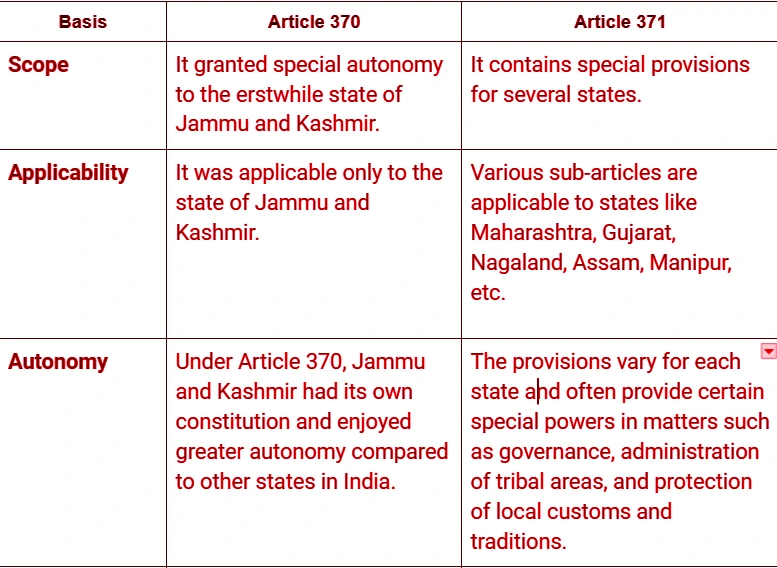
Way Forward
- Promote Economic Self-Sufficiency: There is a need to shift the focus from dependency on Special Provisions for Some States to promoting economic self-sufficiency.
- For this, the center needs to encourage states to develop industries, entrepreneurship, and job opportunities, reducing reliance on financial aid.
- Promote Social Harmony and Inclusivity: Emphasize the promotion of social harmony and inclusivity to prevent the rise in the feeling of regionalism and separatism.
- For example, fostering a sense of national identity alongside regional identities.
- Ensure Targeted Interventions: Tailor Special Provisions for Some States to address specific needs rather than adopting a one-size-fits-all approach.
- Target interventions based on the unique challenges faced by each state or region, ensuring that resources are directed where they are most needed.
- Adaptive Policies: Recognize that socio-economic conditions change over time and develop policies that adapt to evolving circumstances, ensuring that Special Provisions for Some States remain relevant and effective in addressing contemporary challenges.
Conclusion:
By adopting a holistic and adaptive approach, India can ensure that Special Provisions for Some States contribute to the broader goals of national unity, economic development, and social harmony.
To get PDF version, Please click on "Print PDF" button.
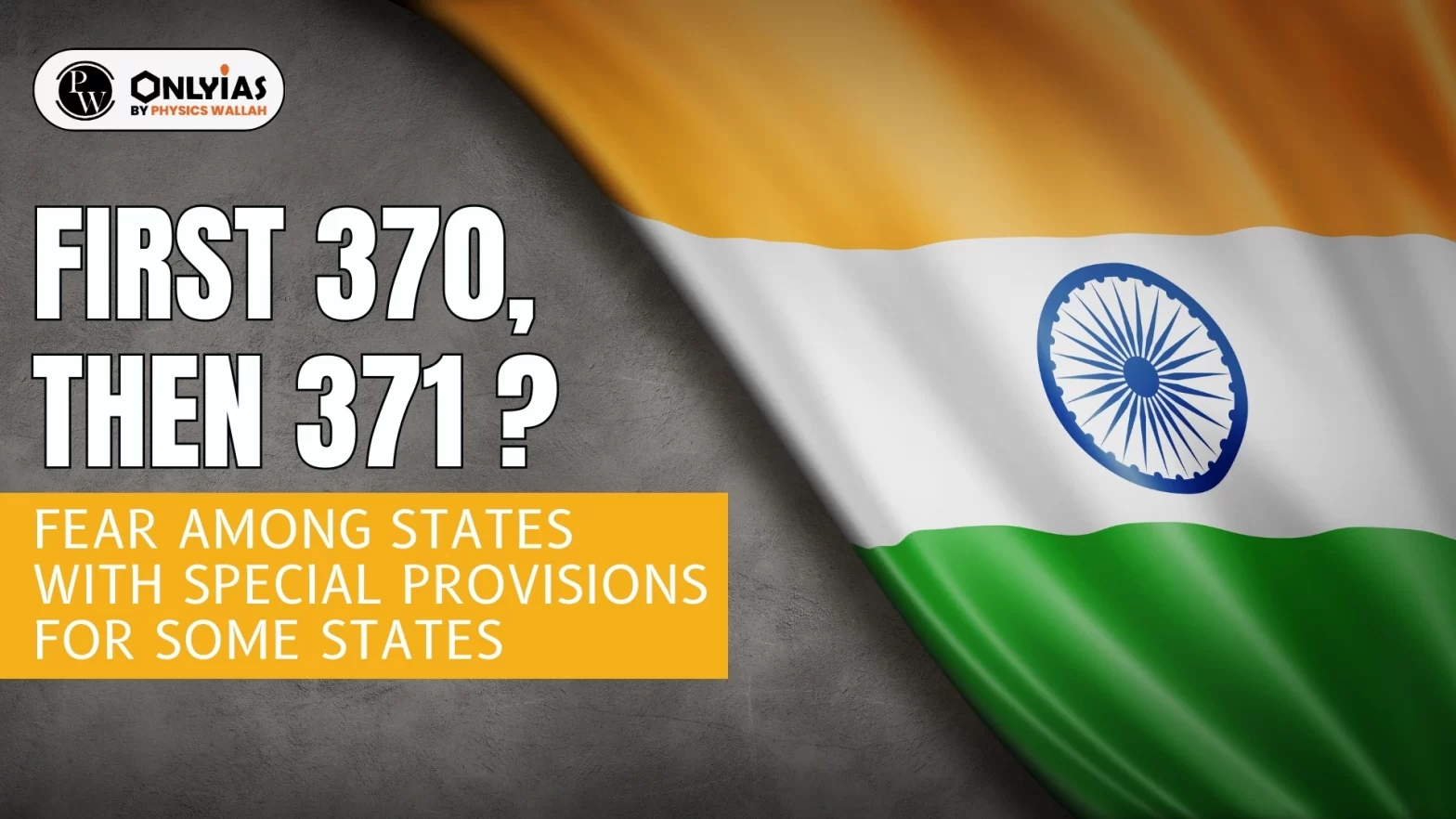
 Centre’s Assurance: The central government has assured that it has no intention to change any part of the Constitution which gives Special Provisions for Some States to the North East and other regions.
Centre’s Assurance: The central government has assured that it has no intention to change any part of the Constitution which gives Special Provisions for Some States to the North East and other regions.


